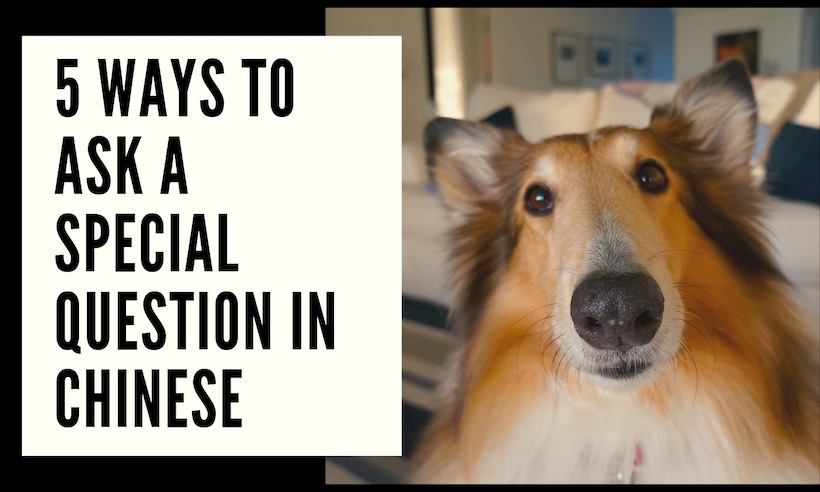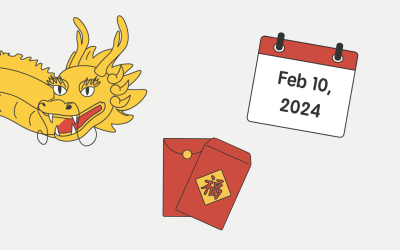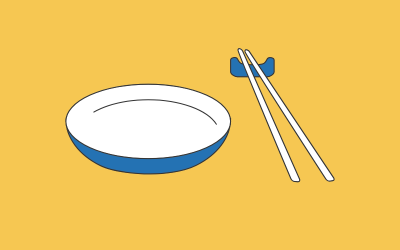In our previous article, we have explained how to ask a general question in Chinese. However, that’s not enough to get by when it comes to studying or living in China, therefore this time let’s take a step further and learn 5 ways to ask a special question in Chinese like “What are you doing?”, “When will you go to Beijing?”, etc.
1. 什么 (shénme)
什么(shénme) means “what”, and the use of this word is pretty straight-forward. Here are some examples.
Example 1: 你在做什么? (Nǐ zài zuò shénme?)= What are you doing?
Example 2: 你想吃什么? (Nǐ xiǎng chī shénme?) = What would you like to eat?
Example 3: 你喜欢什么运动? (Nǐ xǐhuān shénme yùndòng?) = What kind of sports do you like?
Please keep in mind that 什么(shénme) usually comes after the verb in a question. For instance,
这是什么? = What is this?
2. 什么时候(shénme shíhòu) VS 几点(jǐ diǎn)
什么时候(shén me shí hòu) means “when”, whereas 几点(jǐ diǎn) means “what time”. Compared with 几点(jǐ diǎn), a special question starting with 什么时候(shén me shí hòu) has a wider range of choices in terms of possible answers because an answer to a question starting with 几点(jǐ diǎn) can only be an exact time such as “five o’clock”.
Example 1:
A: 你什么时候去北京? = When will you go to Beijing?
B: 下个星期。= Next week.
Example 2:
A: 你几点吃午饭? (Nǐ jǐ diǎn chī wǔfàn?) = When are you going to have lunch?
B: 十二点。(Shí’èr diǎn.) = Twelve o’clock.
3. 哪里 (nǎli) VS 哪儿 (nǎr)
Both words mean “where”. However, 哪里 (nǎ li) is more often used in South China, whereas 哪儿 (nǎr) turns out to be more popular among people from the North. When asking a question like “Where are you going?”, 哪里(nǎ li) or 哪儿 (nǎr) comes after the verb.
Example 1: 你现在去哪里? (Nǐ xiànzài qù nǎlǐ?) = Where are you going now?
Example 2: 你在哪儿? (Nǐ zài nǎ’er?) = Where are you?
4. 谁 (shuí)
谁 (shuí) means “who”. The standard pronunciation of 谁 is “shuí”, however, it’s often pronounced as “shéi” in people’s daily life in China.
Example 1: 你找谁? (Nǐ zhǎo shéi?) = Who are you looking for?
Example 2: 谁喜欢咖啡? (Shéi xǐhuān kāfēi?) = Who likes coffee?
5. 哪 (nǎ) + measure word
哪 (nǎ) means “which”. When asking a question with 哪 (nǎ), the word itself is usually followed by a measure word. The measure word is subject to change depending on what noun comes after.
Example 1: 你喜欢哪本书? (Nǐ xǐhuān nǎ běn shū?) = Which book do you like?
Example 2: 你想去哪个公园? (Nǐ xiǎng qù nǎge gōngyuán?) = Which park do you want to go?
Which of these 5 ways to ask a special question in Chinese do you use most often?
Can you make more examples with each type?
[If you like this post, check out our previous article about 3 ways of asking a general question in Chinese]
Leave a comment with your answer below – or tweet us at @thatsmandarin!









0 Comments